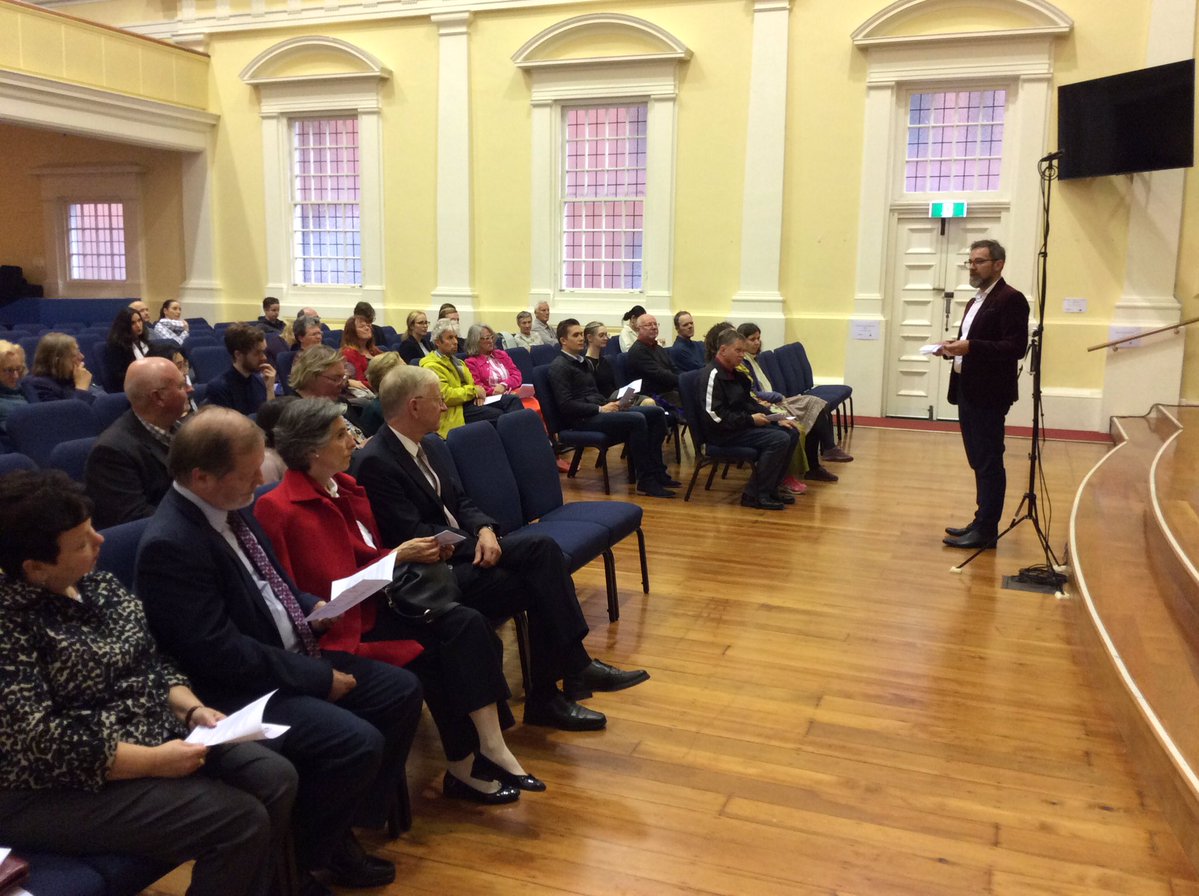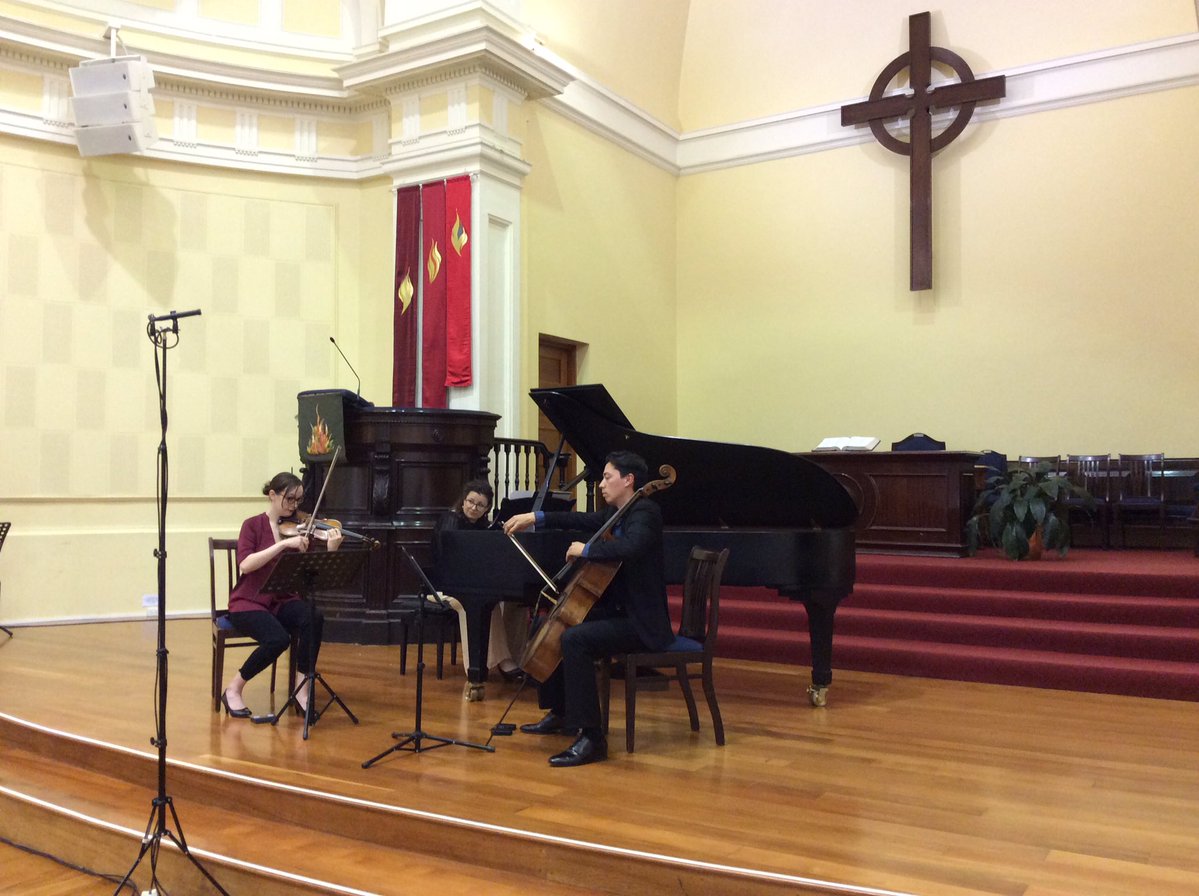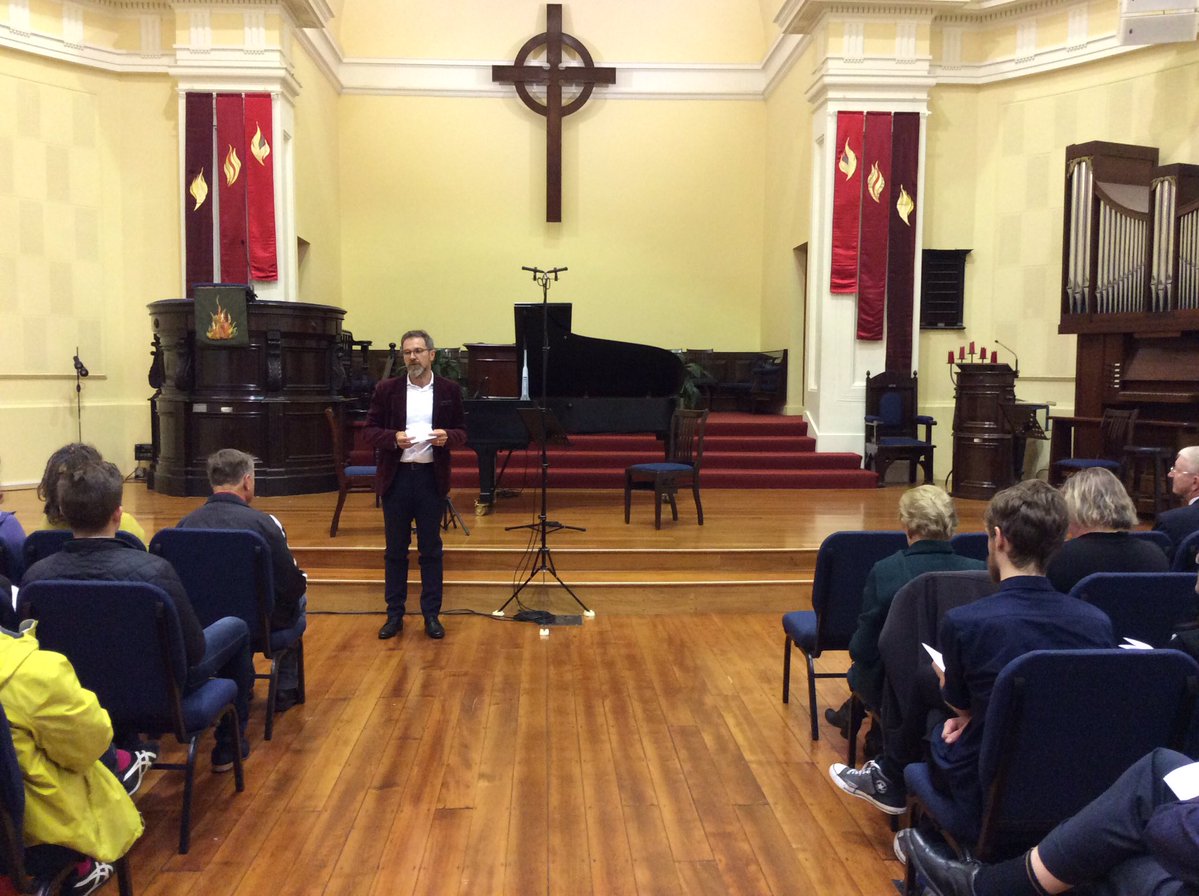Concerts “New World, New beginnings” marking 75th anniversary of the Polish Children’s arrival
18.11.2019
Two concerts “New World, New beginnings”, on 15 and 17 November 2019 at the iconic St Andrew’s on the Terrace church in Wellington, were performed by SMP Ensemble, founded by Andrzej Nowicki. The ensemble is associated with the Victoria University of Wellington. The project was supported by the Polish Embassy in Wellington.

The performance of 17 November was attended by Ambassadors (of Poland, Germany, Israel and Chile), representatives of NZ MFAT, Polish Community and Wellingtonians.
Polish Ambassador said on the occasion: “Today, 75 years since the arrival of the Polish Children, we express our gratitude to the Government and people of New Zealand - Catholic Church and organisations - for the great gesture of extreme kindness. We also pay tribute to this group of wonderful Poles, who, for all those years, have cherished their language, heritage and culture, while also being model citizens in their new home country. We were privileged to attend beautiful reunion within the last few weeks – in Auckland, Pahiatua and here in Wellington. Those events were filled with emotions, memories, a few tears - all with the omnipresent sense of belonging to the unique family.”
On 1 November 1944, 733 mostly orphaned children arrived in Wellington Harbour. 102 adults – teachers, doctors and other caregivers – accompanied the group to Pahiatua, near Palmerston North, where a camp called ‘Little Poland’ was established to give them a temporary home. They had survived deportation and forced labour camps in the Soviet Union, including Siberia. When two totalitarian states – Nazi Germany and the Soviet Union - clashed in 1941, with Hitler’s invasion of Russia, the Polish prisoners were free to leave the Soviet Union, in fact only few out of 1,5 million Polish deportees survived. In 1943 Fraser-led Government invited a group of Polish children to New Zealand. Eventually, most of them chose to settle in this country after the war. Poland remained behind the Iron Curtain.
The programme of the concert of 17 November included compositions of three Polish composers.
Karol Szymanowski was the most celebrated Polish composer of the early 20th century. Szymanowski's music has received international appreciation. Szymanowski was deeply interested in the Polish folk and tried to create a Polish national style, a task unattempted since Chopin. Living in Zakopane, the regional centre of the Polish Highlanders, he adopted their language, rhythms and winding melodies in his new style.
Polish-born composer and pianist Andrzej Czajkowski – later known as André Tchaikowsky - was an outstanding musician who led an extraordinary life. Born in 1935 in Warsaw, named Robert Andrzej Krauthammer, he survived the Warsaw ghetto and the German Nazi occupation of Poland. After years of touring with concerts around America and Europe, he finally settled in England in the 1960s. He became known not only for his artistic achievements, but also for his complex personality, sense of humour and erudition. He was the protégé of Arthur Rubinstein, a prize winner of Chopin International Piano Competition in 1955, and Queen Elizabeth International Piano Competition in 1956. He performed with major orchestras and conductors worldwide, including in New Zealand.
And Hanna Kulenty – a contemporary author, born in Białystok, who works and lives both in Warsaw and The Netherlands.


